Of faith and prayer: Muslims celebrate Eid in China, Indonesia
[caption id=“attachment_2877866” align=“alignnone” width=“940”]  Yogyakarta, Indonesia: Children parade on the streets as Muslims celebrate Eid, marking the end of Ramadan.
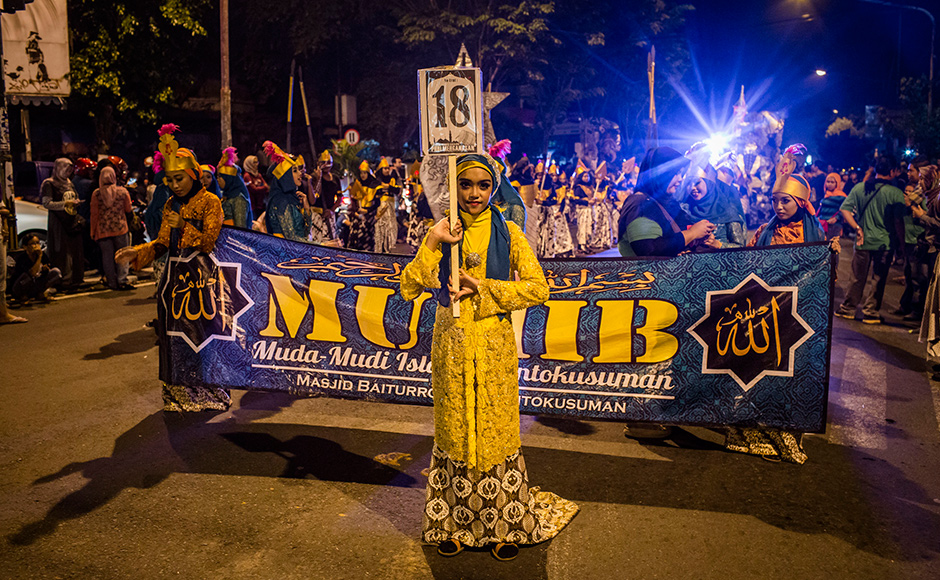)
Yogyakarta, Indonesia: Children parade on the streets as Muslims celebrate Eid, marking the end of Ramadan. Getty images
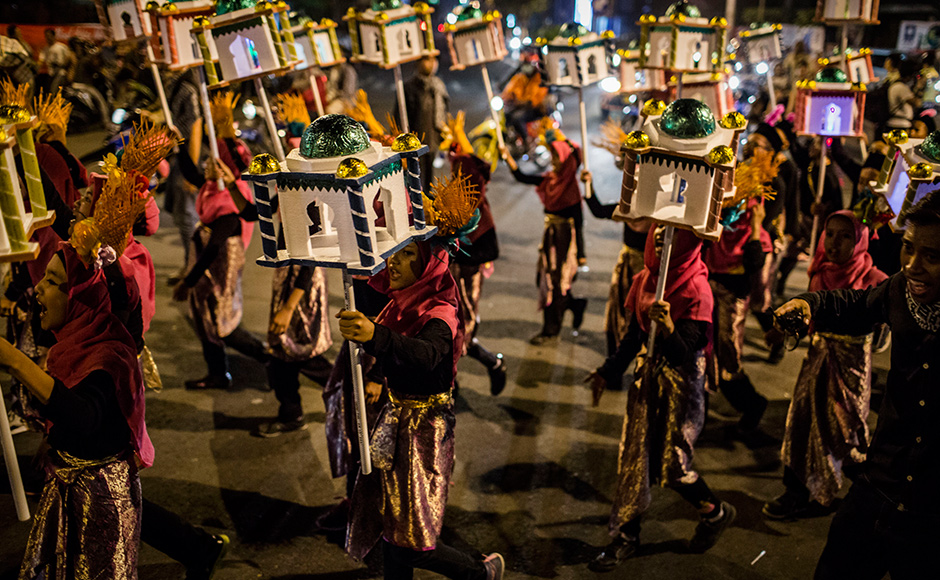)
Eid celebrations in Indonesia have special significance this year as on 5 July, a suicide bomber struck outside a police station in Solo, Java, wounding one policeman. Police say the attacker was linked to a leading figure among Indonesians fighting with IS in Syria. It was one of the several IS-linked attacks that took place during Ramadan across the world. Getty images
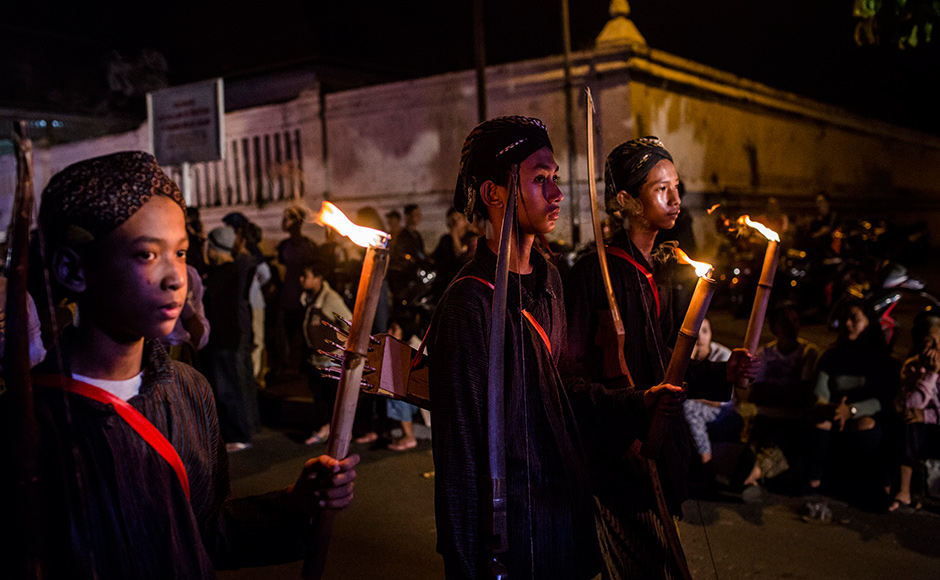)
The attack in Solo city, the hometown of President Joko Widodo, came as the Indonesian leader was preparing to visit the city to celebrate Eid with his family. Getty images
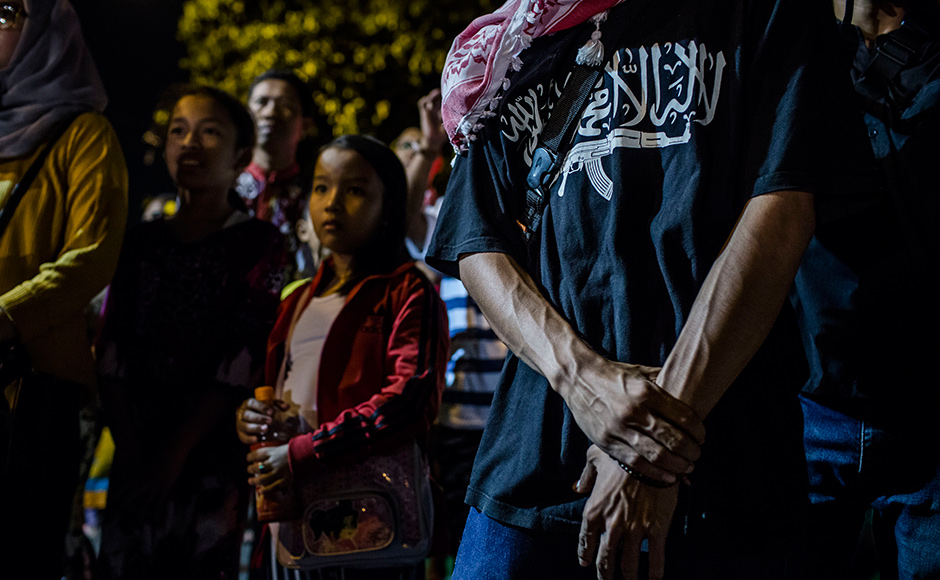)
Widodo called for people to remain alert after the assault, which happened on the last day of Ramadan. The gun and suicide bombing attack which took place earlier this year in Jakarta killed four civilians and four assailants. It was claimed by IS and was the first major Islamist terror attack in Indonesia in seven years. Getty images
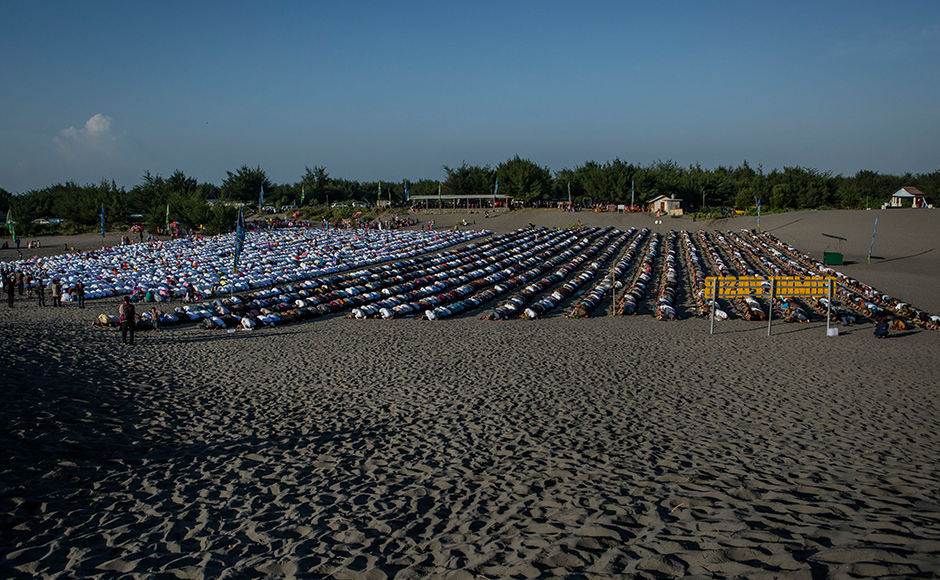)
Muslims in Indonesia perform Eid Al-Fitr prayer on ‘sea of sands’ at Parangkusumo beach in Yogyakarta, Indonesia. The authorities went on alert a day before Eid, amid fears IS-linked militants could launch fresh attacks. Getty images.
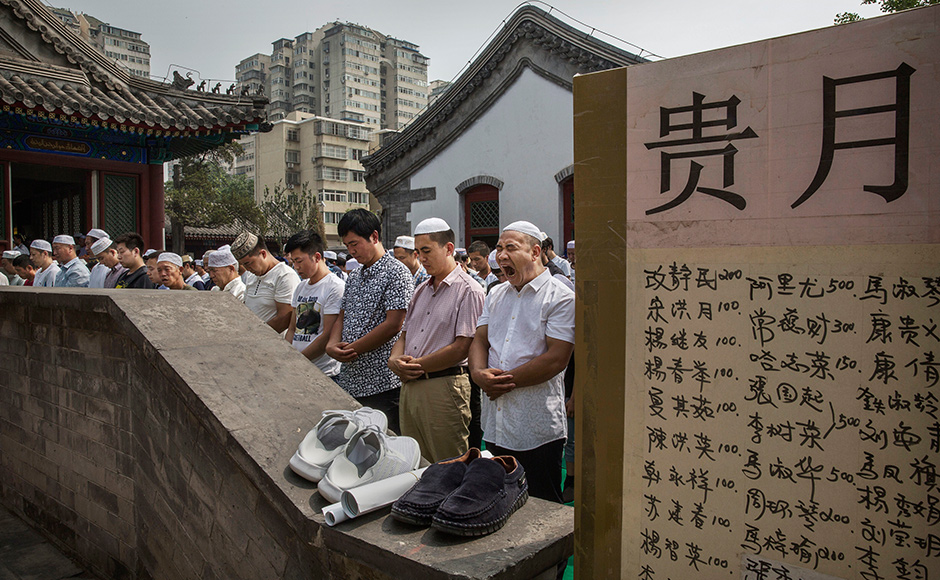)
Beijing, China: Muslims for Eid prayers at the historic Niujie Mosque on 6 July. Islam in China dates back to the 10th century as the legacy of Arab traders who ventured from the Middle East along the ancient Silk Road. Getty images
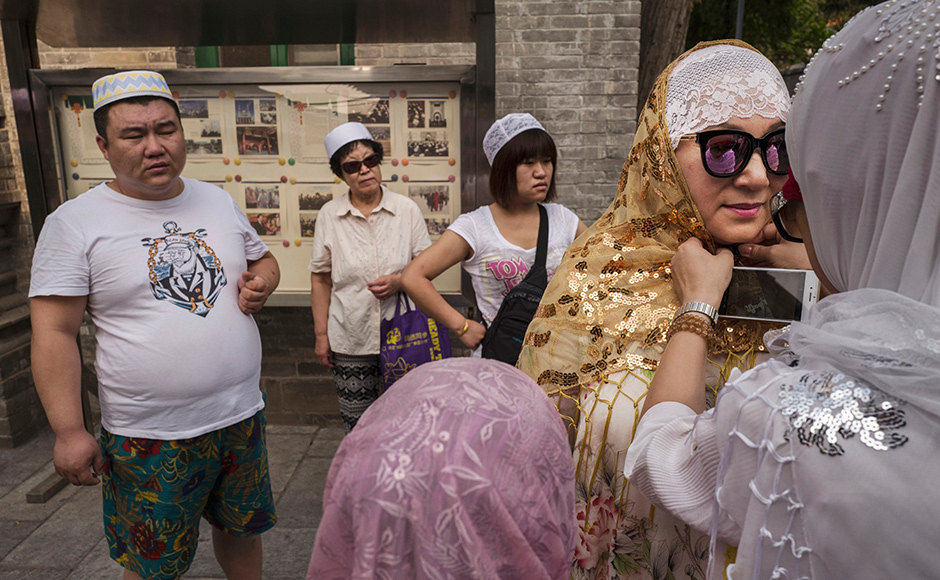)
A Chinese Hui Muslim woman helps another with her headscarf before Eid prayers. Of an estimated 23 million Muslims in China, roughly half are Hui, who are ethnically Chinese and speak Mandarin. Getty images
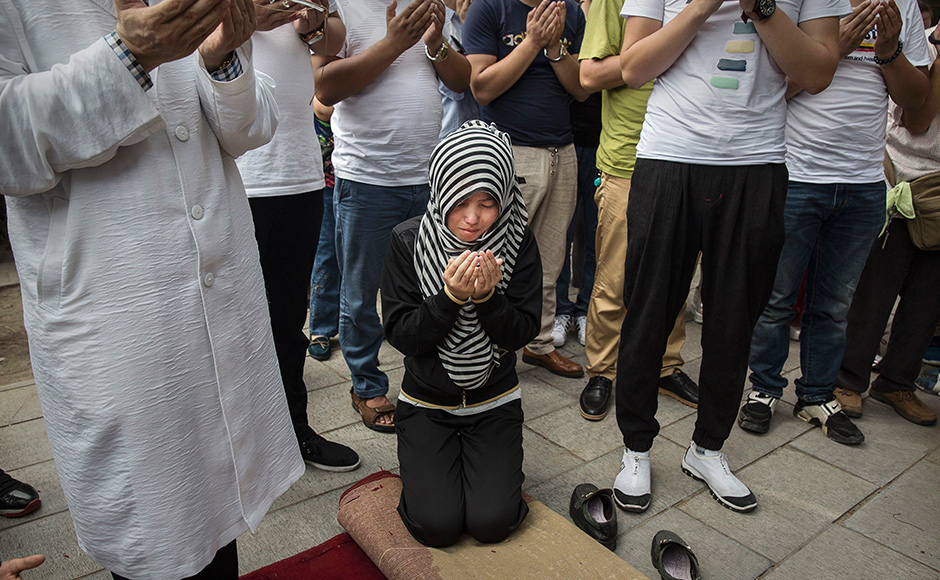)
A Chinese Hui Muslim woman weeps as she prays at the ‘Sheiks Tombs’ after Eid prayers. The Hui, one of 55 ethnic minorities in China (along with the Han majority), have long nurtured a coexistence with the Communist Party and is among the minority groups with political representation at various levels of government. Getty images
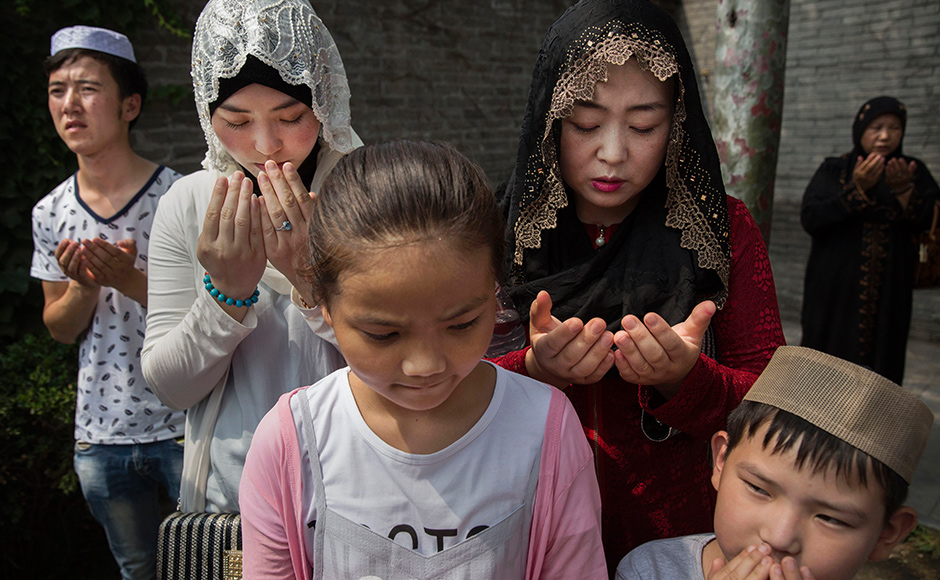)
A Chinese Hui Muslim family prays at the ‘Sheiks Tombs’. China’s constitution provides for Islam as one of five ‘approved’ religions in the officially atheist country though the government enforces severe limits. Worship is permitted only at state-sanctioned mosques and proselytizing in public is illegal. Getty images.
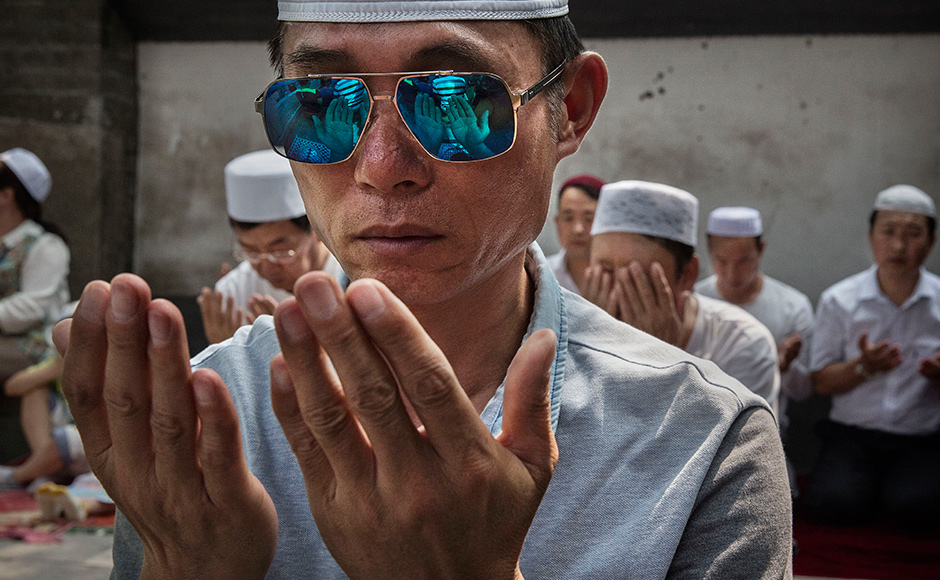)
The Hui Muslim population fast from dawn until dusk during Ramadan and it is believed there are more than 20 million members of the community in the country. Getty images.
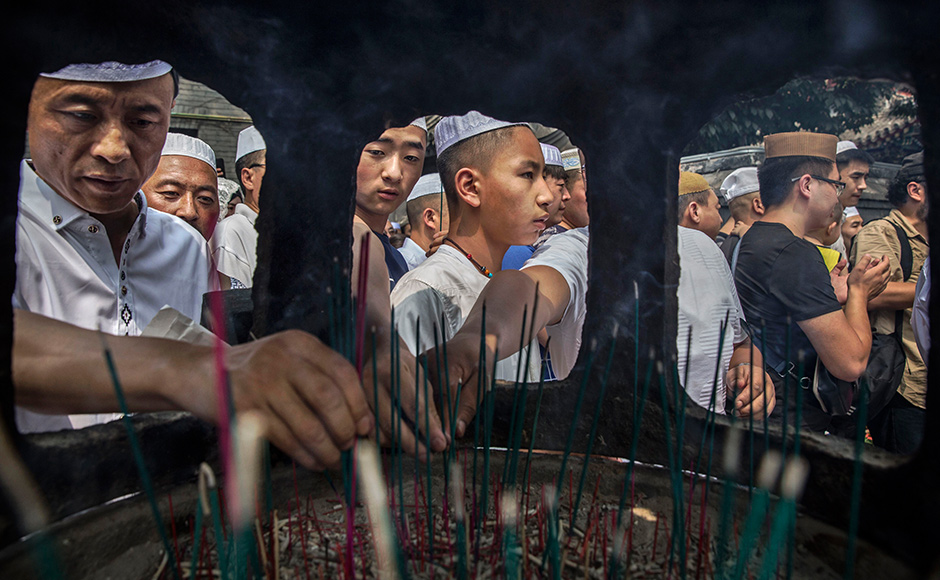)
Chinese Hui Muslim men light incense at the ‘Sheiks Tombs’ after Eid prayers. Getty images


)
)
)
)
)
)
)
)



